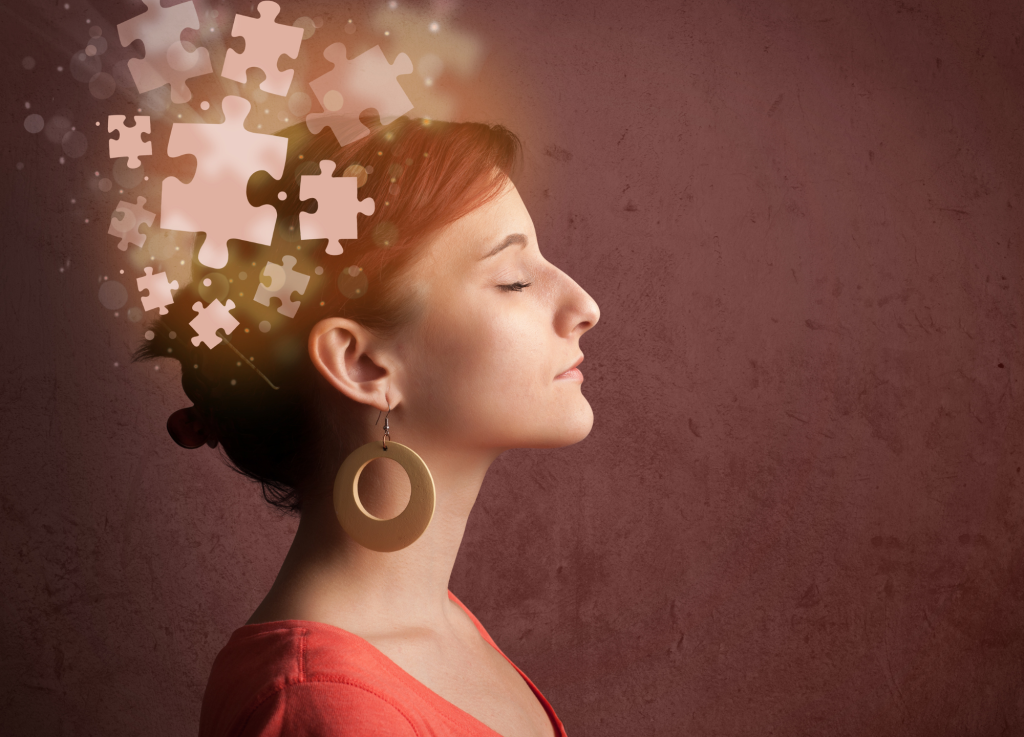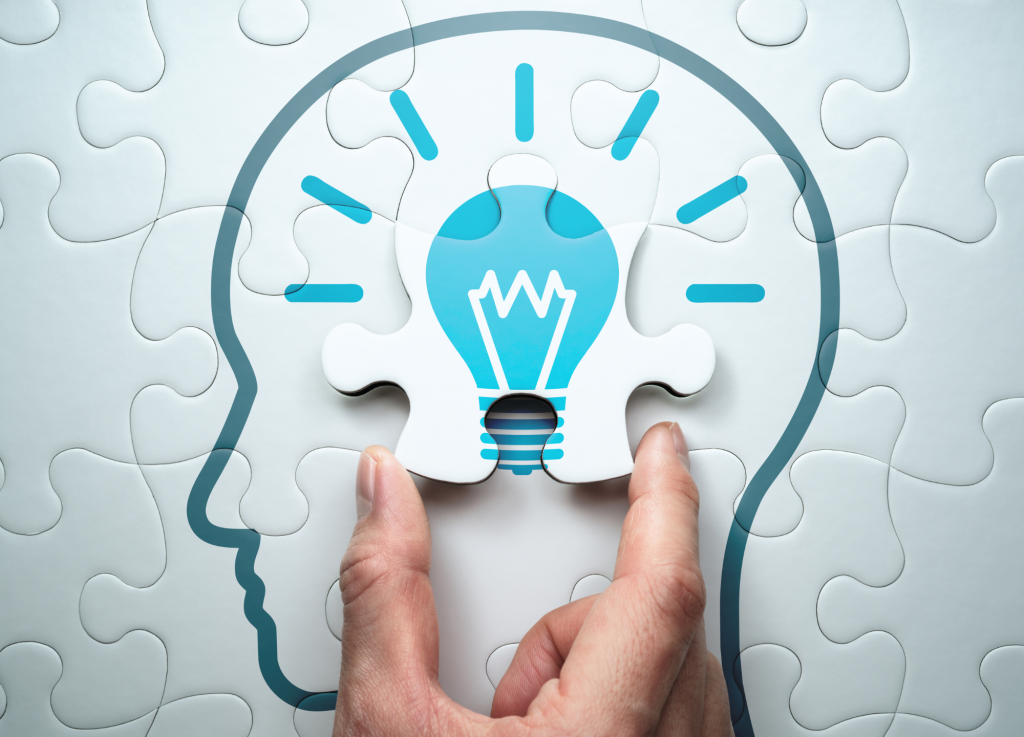The Psychology of Solving Puzzles: How Escape Rooms Challenge and Engage Your Mind
The rise of escape rooms in recent years has been meteoric, captivating adventure seekers, puzzle aficionados, and firms looking to foster teamwork. But beyond the popularity and escapism, there’s an intricate web of mental engagement and psychological satisfaction waiting to be unraveled. In this blog post, we’re not just opening the door to the world of puzzles; we’re diving deep into the very fabric of what makes them so compelling.

Introduction: The Enigmatic Draw of Escape Rooms
Escape rooms have surged from niche curiosities to become mainstream sensations, with thousands of attractions across the globe. When you step into an escape room, you’re not just walking into a thematic puzzle box, but you’re also entering into a world where the nature of problem-solving is morphed into an interactive psychodrama. Puzzles in these scenarios do much more than jumble tiles and present riddles; they blend art with science to engage the cognitive and emotional centers of the brain in ways traditional puzzles often fall short.
Solving in an escape room is immediate, situational, and deeply immersive, traits that deeply affect the psyche of participants. The challenge and joy of puzzle-solving don’t just lie in the resolutions themselves but in the deeply rewarding cognitive and emotional processes that lead to them.
The Psychology Behind Puzzles
Escape rooms are perfect petri dishes for observing the psychological mechanics behind puzzles. Participants are thrust into a new environment where the given scenario shapes their tasks, which range from pattern recognition to lateral thinking. But it’s not just about the tasks; the very setting of an escape room stimulates our minds to focus and engage, fostering skills that are essential in everyday life.
The act of trying to solve puzzles within the confined pressure of an escape room leverages game theory principles, nudging players towards a ‘puzzler mindset.’ This mindset triggers a shift in perspective, where players begin to see patterns and connections they might overlook in everyday life. It’s about transforming obstacles into stepping stones, where every clue solved unravels a part of the larger mystery. Beyond the individual effort, escape rooms encourage the development of common knowledge, requiring teams to communicate effectively, share discoveries, and build on each other’s insights. This dynamic can be intensely rewarding, as it mirrors the collaborative endeavors that solve complex problems in the real world.
Cognitive Engagement and Problem-Solving Skills
The act of solving a problem is deeply rooted in the psychology of learning and cognition. When you solve a puzzle, you engage in processes such as memorization, attention to detail, critical analysis, and creative thinking. These processes are what cognitive scientists refer to as executive functions – the high-level mental abilities that are crucial in solving problems both large and small.
Emotional Satisfaction and Stress Relief
There’s a profound emotional satisfaction that comes from unraveling a puzzle. Psychologically, problem-solving provides a concrete sense of accomplishment, releasing chemicals in the brain that trigger feelings of joy and happiness. This can act as stress relief, as the psychological one-upmanship against challenging puzzles can be a cathartic, empowering experience.
Escape Rooms as a Challenge
The veneer of escape rooms is that they are mere recreational diversions, yet behind the fun is an experience that efficiently simulates life’s challenges.
Team Dynamics and Collaboration
The complexity of many escape room puzzles is designed to be above the pay grade of a single, unaided individual. Collaborative problem-solving, thus, is not just a nicety but a necessity. The interplay of team members, their individual strengths and expertise, becomes a microcosm for understanding group dynamics and learning to leverage each other’s skills effectively.
This deep dive into the allure of escape games, particularly how teams find clues and solve complex puzzles together, underscores not just the fun aspect, but also the intricate dance of intellect and collaboration. The excitement that comes from working within a time limit to solve riddles and unlock secrets taps into a primal urge for discovery and achievement. In doing so, participants enhance not only their problem-solving skills but also their ability to communicate and work as part of a team.
Time Pressure and Decision Making
In an escape room, time isn’t just a function, it’s a character. The ticking clock introduces an element of urgency that is not found in many other puzzle-solving situations. This time pressure sharpens decision-making skills and prioritization, compelling participants to think strategically and tactically under stress, just like in real-world situations that demand quick and effective choices.
When participants feel stuck in an escape room, it often necessitates a pause and reassessment of the situation. This moment of standstill isn’t a signal of defeat but rather an opportunity to compile what is known, reconsider strategies, and potentially uncover new ways of approaching the problem. It’s a dynamic interplay between being at a standstill and striving towards completion. As players progress further into the game, the satisfaction of connecting the dots, finding the next clue, or unlocking a new room rejuvenates the group’s energy, and the quest for solutions intensifies. Each success and each new challenge forces participants to adapt their thinking, promoting a flexible problem-solving attitude that can think outside the conventional box. The essence of an escape room isn’t just to play but to evolve – to transform scattered bits of information into a coherent strategy for escape. This evolution, from stuck and disjointed to complete and cohesive, mirrors the broader human drive to overcome obstacles and progress, not just in games but in the intricate puzzle of life itself.
Benefits of Engaging in Puzzles

Engaging in puzzles, particularly in the eclectic mix found in escape rooms, offers a myriad of mental and social advantages.
Escape room companies have diversified their game offerings to cater to a wide array of audiences, ensuring that whether it’s a team looking for a corporate bonding experience, kids celebrating a birthday, or a group of friends seeking a unique outing, there’s something for everyone. These games, designed around the concept of ‘escape,’ challenge players to unravel the mysteries within set time limits, promoting not just cooperation and teamwork but also individual cognitive skills. For teams, it’s an extraordinary way to explore dynamics in a fun setting, proving incredibly helpful in identifying strengths and weaknesses within the group. For kids and friends, it’s an immersive adventure into different types of puzzles, each with a unique solution that tests their critical thinking and creativity. The allure of escape rooms lies in their capacity to transform a simple game into a complex, interactive experience that encourages players to explore, collaborate, and ultimately grow.
Improved Cognitive Abilities
Regular participation in puzzles, especially those with varied challenges, can lead to a sharpening of cognitive abilities. Complex and diverse puzzles test different areas of the brain, leading to improved memory, increased processing speed, and enhanced learning abilities. In the long term, a robust puzzle-solving routine can improve overall cognitive function and even delay age-related decline in brain health.
Enhanced Communication and Teamwork Skills
By dispensing with the individualistic approach to problem-solving, escape rooms encourage communication and teamwork. These rooms magnify the importance of clear, open communication and the benefits of working in a structured, collaborative manner. The resulting enhancement in teamwork skills can positively impact both personal and professional life, leading to better relationships and more successful collaborations.
Personal Experiences and Stories
While the psychological benefits are universal, the personal experiences within escape rooms are as diverse as the individuals who populate them. Testimonials from participants often shine a light on the personal growth and bonding that occurs in these pressure-cooker environments.
One person, upon their first escape room adventure, might realize the depth of their own curiosity and problem-solving skills. Engaging with the game, they find themselves completely absorbed in the narrative and puzzles that the room offers. It’s through the process of escaping that they discover a latent talent for seeing patterns and connections where others see chaos. This realization often comes as a surprise, as they may not have considered themselves to be particularly good puzzle solvers before stepping into the escape room. Yet, by the game’s end, their contribution to the team’s success clearly marks them as someone who not only enjoys the thrill of the escape but excels at it.
Testimonials from Puzzle Enthusiasts
Many who enter the realm of escape rooms come out with more than just a solved mystery. They come back with stories of rivalry and friendship, of tension and elation. These testimonies serve as reminders that escape rooms, at their core, are social experiments in disguise, providing fodder for anecdotes and reflection far beyond the hour-long ordeals within their walls.
Escape rooms and the puzzles within them are more than mere passtimes – they are immersive experiences that engage the mind on multiple levels. The cognitive and emotional benefits of participating in these activities go far beyond the adrenaline rush of a narrowly averted catastrophe or the satisfaction of a puzzle solved. They have the power to enhance our problem-solving abilities, improve our relationships, and even boost our mental agility into old age.
The challenge, then, is not just cracking codes or juggling clues, but in recognizing these experiences as opportunities to grow and connect with the world and the people around us in a more profound way. Whether as a team-building exercise or a casual weekend adventure, the next time you find yourself confronted with a puzzle, whether in an escape room or elsewhere, think of it not just as a challenge to overcome, but as a chance to exercise and expand your mind in ways you never thought possible.

